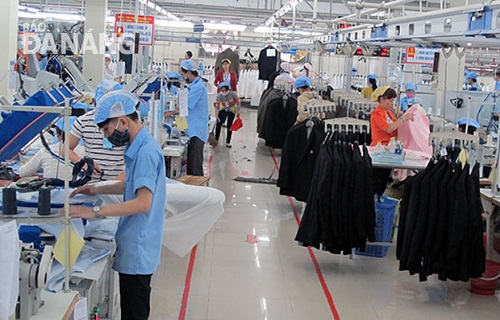Textiles and garments companies plan to take advantage of international trade agreements
Viet Nam will enter many bilateral trade agreements with foreign partners very soon, including free trade agreements (FTA) with the EU, South Korea and the Eurasian Economic Union (EEU). Also, the Trans-Pacific Partnership (TPP) agreement on tariff exemptions between member nations is likely to be implemented soon. These are all expected to bring numerous benefits to Viet Nam’s textiles and garments industry.
Currently, Da Nang is home to about 60 textiles and garments businesses. Although their combined output only accounts for nearly 2% of Viet Nam’s total, the city boasts great potential for the future development of this sector.
 |
| Workers at the Hoa Tho Textiles and Garments Company |
In particular, thanks to their hard-working and studious characteristics, textiles and garments employees from Da Nang and the central region are often highly appreciated by their employers in Ho Chi Minh City and its neighbouring localities. Over recent years, Da Nang has seen a significant increase in the number of the workers returning to the city to work because the local textiles and garments businesses are in need of more recruits to expand their production.
In addition, most of the local companies are making every effort to expand their businesses, upgrade their production technology and products, and promote their brand names in order to boost their development and international integration.
The city’s Hoa Tho Textiles and Garments Company is a typical example. It now has 7 member units and 3 subsidiaries, employing a total of around 8,000 skilled workers. The company’s total export turnover is likely to hit 140 million USD this year. Modern facilities and equipment make up nearly 90% of the company’s total, and its products have won the trust of large foreign customers. The company is planning to cooperate with other domestic textiles and garment businesses and TPP members to supply raw materials for the sector.
The General Director of the Hoa Khanh Textiles and Garments Company, Mr Nguyen Chanh, suggests that the local companies should work closer together to fully tap their common advantages of advanced technologies and potential markets. This will help them to improve the quality of their products and win the trust of their customers. He also said that he would like the local authorities to issue more policies for exempting or reducing corporate income tax or support policies for textiles and garments workers, as well as help local businesses access loans at low interest rates.